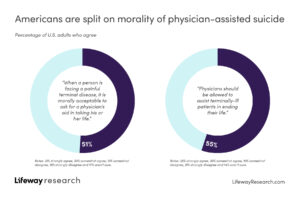
PHOENIX (BP)–Arizona Attorney General Janet Napolitano has announced a $217 million settlement with the Arthur Andersen accounting firm involving the Baptist Foundation of Arizona.
“Combined with the BFA’s $220 million in assets, victims, many of whom invested their life savings, will be able to recover up to 83 percent of the money they invested prior to [when] BFA filed for bankruptcy in 1999,” Napolitano’s office asserted in a March 1 news release. Many of the BFA’s 11,000 investors were elderly and “trusted the misleading financial statements audited by Andersen,” Napolitano said in a prepared statement.
By the end of 2002, with the Arthur Andersen settlement and other initiatives, BFA investors will have recouped more than 44 percent of their losses, “with more to come” from the ongoing sale of the former BFA’s assets, BFA Liquidation Trust trustee Clifton Jessup predicted in a prepared statement. The Wall Street Journal, using BFA Liquidation Trust projections, reported March 4 that BFA investors “eventually could recover more than $420 million after attorneys’ fees and other expenses,” or more than 70 percent of their losses.
The size of the settlement was “remarkably large compared with the losses suffered by investors,” The Journal noted. “Investor lawsuits against accounting firms usually settle for pennies on the dollar.” The settlement was reached before the case was scheduled to go to trial March 4 in Phoenix.
The BFA case involves the largest Chapter 11 bankruptcy filing by a nonprofit organization in U.S. history and is approximately twice the largest malpractice court settlement previously agreed to by Chicago-based Arthur Andersen. The settlement also is the second largest ever paid by a “Big Five” accounting firm to settle litigation not associated with the savings & loan crisis.
Three former BFA officials have pleaded guilty to felonies in the case while five others face fraud and racketeering charges.
“The agreement settles all civil and administrative claims against Andersen involving the Baptist Foundation of Arizona, including the class action lawsuit against the firm over its failure to warn investors about problems with BFA’s financial difficulties,” the Arizona attorney general’s news release stated.
Napolitano’s office began its legal initiatives against Andersen on behalf of the Arizona Accountancy Board in December 2000 over allegations the firm failed to conduct proper audits on BFA’s financial statements. Napolitano and the Arizona Corporation Commission then filed a civil lawsuit against Andersen in January 2001, seeking civil remedies for violations of the Arizona Securities and Consumer Fraud Act.
Founded in 1948 to raise money for Southern Baptist causes, BFA and its subsidiaries and affiliates had marketed securities throughout the United States as retirement vehicles for investors and served as a custodian for tax-deferred Individual Retirement Accounts. At the time BFA filed for bankruptcy in November 1999, it had total liabilities of approximately $650 million and listed assets of approximately $290 million. BFA’s liabilities included approximately $585 million owed to more than 11,000 investors.
As recounted by The Wall Street Journal March 4, many of the foundation’s investors were elderly churchgoers “attracted by the foundation’s offer of above-market returns on promissory notes and other investment products, and by its mission of using earnings for good works, such as building churches and nursing homes for the poor. The suits against Andersen alleged that the foundation had become a Ponzi scheme, needing to raise tens of millions of dollars to pay the high returns it had promised to earlier investors.”
The Journal noted that, according to the lawsuits, a key reason why the scheme lasted “as long as it did … was that Andersen continued to certify the foundation’s financial statements and dismissed multiple warnings by individuals that the foundation was defrauding investors.”
Subject to a number of conditions, including requisite court approvals, Andersen is obligated to deposit the $217 million in an account controlled by the BFA Liquidation Trust by April 15. After litigation costs and attorneys fees, the trust estimates that net recovery to investors from the Andersen settlement alone — approximately $185 million — will constitute repayment of about 32.4 percent of the losses suffered by investors.
A prospective settlement for $21 million that is about to be finalized with BFA’s former outside law firm, Jennings Strouss, is expected to result in a distribution of another $18.3 million (constituting reimbursement of another 3.2 percent of losses) to investors later in 2002, according to the BFA Liquidation Trust. As of Dec. 31, according to the trust, $49 million (constituting reimbursement of 8.6 percent of BFA’s losses) had been distributed to investors from sales of real estate and other BFA assets. Those sales continue and are expected to generate additional distributions over the next three years. The trust also is pursuing litigation claims against other parties that may recover additional money to be distributed to investors.
The trust’s lead trial lawyer, John P. “Sean” Coffey, a partner of Bernstein Litowitz Berger & Grossmann LLP and a former federal prosecutor, said in a trust news release, “The settlement is notable not only for its size and percentage of recovery, but also because it achieves our goal of getting significant money back in the victims’ hands soon, rather than after a lengthy trial and years of appeals that carried some significant risks.”
Andersen did not admit any wrongdoing in the settlement, the BFA Liquidation Trust acknowledged.
In a prepared statement, Andersen said it was “a business decision to settle this matter, without admitting or denying any wrongdoing, to enable our firm to move forward without the uncertainty and distraction of costly and protracted litigation in Arizona.” Andersen acknowledged that “there is no question that investors were the victims of a massive fraud perpetrated by Baptist Foundation of Arizona leadership.” Andersen noted, “… a number of parties, including multiple agencies of the State of Arizona, BFA’s law firm, and the Arizona Southern Baptist Convention were warned of possible irregularities at BFA, and did not act adequately, nor did they notify our firm.”
The Wall Street Journal, on March 4, said it asked Andersen spokesman David Tabolt whether the firm had made any mistakes in its work for the Baptist foundation or intended to express any apologies to investors. “We said what we said,” Tabolt replied to The Journal. The newspaper also said Tabolt referenced a February statement by Andersen that, “To the extent that we may bear responsibility, we are willing to do our share to arrive at a fair resolution of this case.”
The March 1 settlement, according to the BFA Liquidation Trust, resolves not only the trust’s case but also a putative class action against Andersen by former BFA investors, a civil action brought by the Arizona Corporation Commission and disciplinary proceedings brought against Andersen and three of its employees by the Arizona Board of Accountancy.
In addition to the financial settlement, the March 1 agreement announced by the Arizona attorney general reports that Andersen firm partner Jay Ozer and audit engagement manager Ann McGrath, both of whom had primary responsibility over Andersen’s audits, will relinquish their state Certified Public Accountant licenses. Additionally, the Arizona Accountancy Board will appoint a three-member oversight board that will monitor Andersen’s Phoenix office in its audits of companies that offer private and public securities for the next two years. Andersen firm tax partner Alan Hague, who also provided consulting services to BFA, also will have his real estate and securities practice monitored by the oversight board and will have to complete professional training to maintain his CPA license.
–30–












